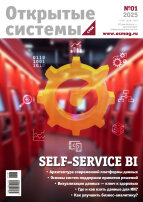_300.jpg)
COVER FEATURES
SOFTWARE ENGINEERING
Ignore, Refactor, or Rewrite?
Imagine that you have some code written, but it has problems. The problems are small enough that you could imagine rewriting the code completely, and you must choose what do.
George Fairbanks (gf@georgefairbanks.com), Software Engineer, Google.
Software Verification and Validation Technologies and Tools
Software quality matters—more than ever. Product liability means that we can only release what we trust. A single critical failure can cease the existence of a company or freelancer. But how to build quality and ensure necessary trust?
Moises Rodriguez (mrodriguez@aqclab.es), managing director, AQCLab; Mario Piattini (mario.piattini@uclm.es), professor, University of Castilla-La Mancha; Christof Ebert (christof.ebert@vector.com), managing director, Vector Consulting Services.
PLATFORMS
On the Way to Hardware-Accelerated Databases
For decades, enterprise data handling technologies has been developing towards scale-out solutions based on industry-standard equipment. One of the products of that evolution is databases accelerated using hardware-specific technologies.
Dmitry Volkov (vlk@keldysh.ru), research scientist, Keldysh Institute of Applied Mathematics; Andrei Nikolaenko (ANikolaenko@Ibs.ru), architect, IBS (Moscow).
ROBOTIC PROCESS AUTOMATION
RPA in Oil and Gas Industry
The quality of data analysis and interpretation at oil and gas enterprises can often depend on a specific approach of a subject matter expert, yet often those routine processes could be automated. Still, there are operations that are impossible to entrust to a bot as yet.
Vladimir Turchaninov (turchaninov@nposngs.ru), Deputy CEO Responsible for Systems Integration, Soyuzneftegazservice (Moscow).
BLOCKCHAIN
Online Advertising Fraud
Fraud is a trust issue. Online fraud is a cybertrust issue. Juniper Research estimated that advertising frauds cost online advertisers US$19 billion worldwide in 2018. A recent survey found that 78% of respondents were concerned about ad fraud and bot traffic.
Nir Kshetri (nbkshetr@uncg.edu), professor, University of North Carolina at Greensboro; Jeffrey Voas (j.voas@ieee.org), fellow, IEEE.
The Consensus Myth
The blockсhain community will keep calling the different Proof-of-X varieties “consensus protocols”, but to avoid ambiguity, it is necessary to know the details of an algorithm that chooses a chain of blocks common for an entire network.
Alexander Boldachev (boldachev@gmail.com), blockchain platform system analyst, Alpha (St. Petersburg).
STANDARDS
Choosing a Rendering System: The Open Rendering Benchmark
The current choice of more than 200 software products for photo-realistic image synthesis is still largely subjective, which does not contribute to the use of systems optimal for solving specific problems. This greatly reduces the value of research in the field as a whole, since it cannot be said whether a proposed method will really work well for other scenes or not. The Open Rendering Benchmark has been created to evaluate the performance of rendering systems in various scenarios and thus to demonstrate the benefits and drawbacks of algorithms used by them under various conditions.
Vladimir Frolov (vova@frolov.pp.ru), Vladimir Galaktionov (vlgal@gin.keldysh.ru), Keldysh Institute of Applied Mathematics, Moscow; Denis Pavlov (denis.pavlov@graphics.cs.msu.ru), Ph.D student; Maxim Trofimov (max.trofimov@graphics.cs.msu.ru), Pavel Kazbeev (silentprayercg@gmail.com), 3D artists, Lomonosov Moscow State University.
DBMS
Ensuring PostgreSQL Fault Tolerance
With PostgreSQL being increasingly used both by businesses and government agencies, including for critical systems, constant monitoring by DBA is necessary to ensure uninterrupted operation of the database. In order to create fault tolerant PostgreSQL based configurations that could operate reliably without manual intervention, special-purpose software is needed.
Igor Kosenkov (i.kosenkov@postgrepro.ru), Igor Levshin (i.levshin@postgrespro.ru), Postgres Professional (Moscow).
INTEGRATION
A Digital Platform for Hydrocarbons Exploration and Production
Both readily available and in-house developed solutions, when used in a company, have its pros and cons. The ERA:GRAD platform, being a trade-off between commercial and in-house created software, enables Gazprom Neft to carry out a successful digital transformation.
Fedor Krasnov (Krasnov.FV@gazpromneft-ntc.ru), Alexander Ershov (Ershov.AO@gazpromneft-ntc.ru), Andrei Margarit (Margarit.AS@gazpromneft-ntc.ru), Gazpromneft NTC (St. Petersburg).
OS MEETING ROOM
The Essential in ITIL 4
Roman Zhuravlev, ITSM portfolio development manager at Axelos, discusses the new edition of ITIL, a key body of knowledge in IT service management.
Natalya Dubova (dubova@osp.ru), science editor, Open Systems.DBMS (Moscow).
SECURITY
Aging like milk, not wine: The realities of container security
In many ways, age brings refinement. Wine, cheese, and, in some cases, people, all improve as they grow older. But in the world of enterprise IT, age has a different connotation. Aged systems and software, can bring irrelevance and technical debt and, at worst, increased security risks. With the rise of Linux containers as a functional underpinning to the digitally-transforming enterprise, the ill effects of technological age are front and center.
Lars Herrmann, general manager, Workload Strategy for Cloud Platforms, Red Hat
OPINION
The Fifth Element of State. On the Inevitability of Internet Censorship
The movement towards creating sovereign segments of the Internet is inevitable. The cyberspace, recognized as a separate area of human activity by virtually all states, is subject to demarcation. The fight for creating a sovereign Internet segment has begun, with censorship being just one of that fight stages.
Valery Korzhov (cwzerro@gmail.com), independent expert (Moscow).
LIBRARY
IT Industry Forecasts and Present State
The January, February, March, and April issues of Computer magazine (IEEE Computer Society, V. 52, No.1-4 2019) cover the topics of IT development outlook and current state, cybersecurity educational curricula, and navigation in the digital world.
Alexander Tyrenko (shoorah@osp.ru), reviewer, Computerworld Russia (Moscow).
